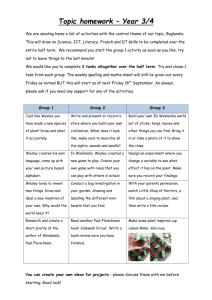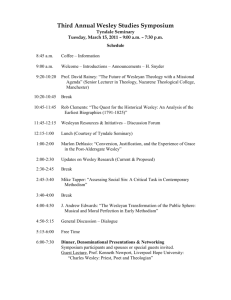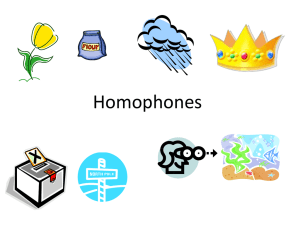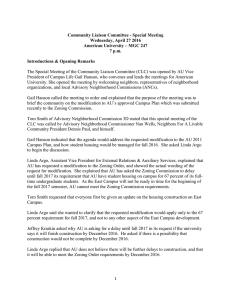FACULTY PRESENTATIONS MONDAY, APRIL 13, 11:00 a.m.
advertisement
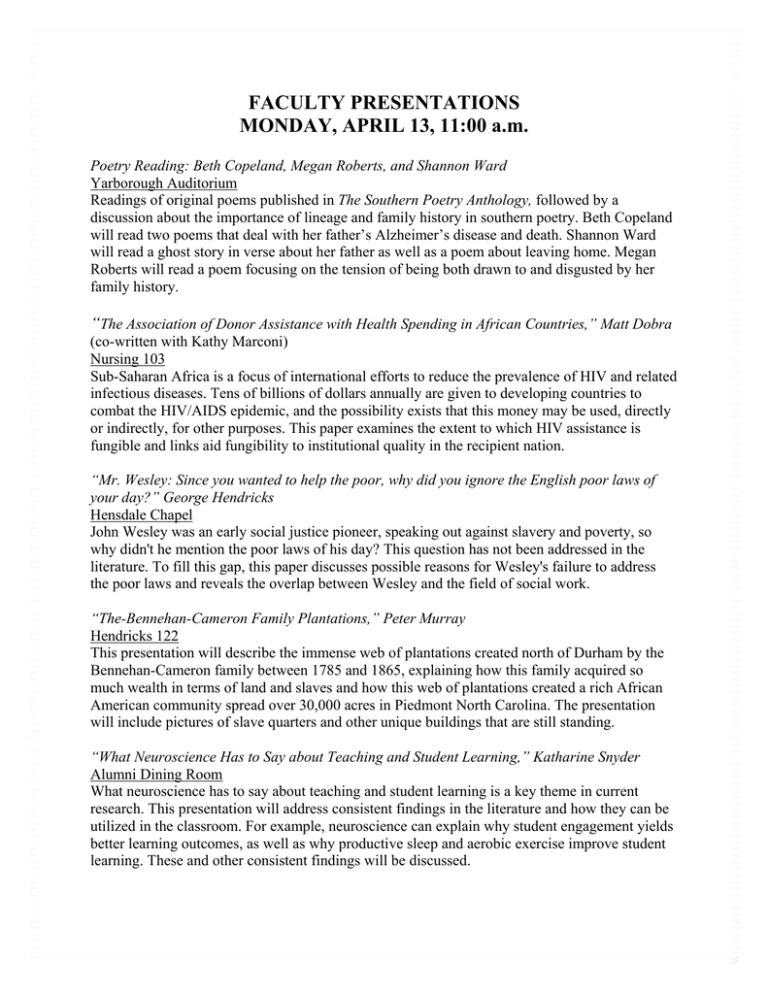
FACULTY PRESENTATIONS MONDAY, APRIL 13, 11:00 a.m. Poetry Reading: Beth Copeland, Megan Roberts, and Shannon Ward Yarborough Auditorium Readings of original poems published in The Southern Poetry Anthology, followed by a discussion about the importance of lineage and family history in southern poetry. Beth Copeland will read two poems that deal with her father’s Alzheimer’s disease and death. Shannon Ward will read a ghost story in verse about her father as well as a poem about leaving home. Megan Roberts will read a poem focusing on the tension of being both drawn to and disgusted by her family history. “The Association of Donor Assistance with Health Spending in African Countries,” Matt Dobra (co-written with Kathy Marconi) Nursing 103 Sub-Saharan Africa is a focus of international efforts to reduce the prevalence of HIV and related infectious diseases. Tens of billions of dollars annually are given to developing countries to combat the HIV/AIDS epidemic, and the possibility exists that this money may be used, directly or indirectly, for other purposes. This paper examines the extent to which HIV assistance is fungible and links aid fungibility to institutional quality in the recipient nation. “Mr. Wesley: Since you wanted to help the poor, why did you ignore the English poor laws of your day?” George Hendricks Hensdale Chapel John Wesley was an early social justice pioneer, speaking out against slavery and poverty, so why didn't he mention the poor laws of his day? This question has not been addressed in the literature. To fill this gap, this paper discusses possible reasons for Wesley's failure to address the poor laws and reveals the overlap between Wesley and the field of social work. “The-Bennehan-Cameron Family Plantations,” Peter Murray Hendricks 122 This presentation will describe the immense web of plantations created north of Durham by the Bennehan-Cameron family between 1785 and 1865, explaining how this family acquired so much wealth in terms of land and slaves and how this web of plantations created a rich African American community spread over 30,000 acres in Piedmont North Carolina. The presentation will include pictures of slave quarters and other unique buildings that are still standing. “What Neuroscience Has to Say about Teaching and Student Learning,” Katharine Snyder Alumni Dining Room What neuroscience has to say about teaching and student learning is a key theme in current research. This presentation will address consistent findings in the literature and how they can be utilized in the classroom. For example, neuroscience can explain why student engagement yields better learning outcomes, as well as why productive sleep and aerobic exercise improve student learning. These and other consistent findings will be discussed.
